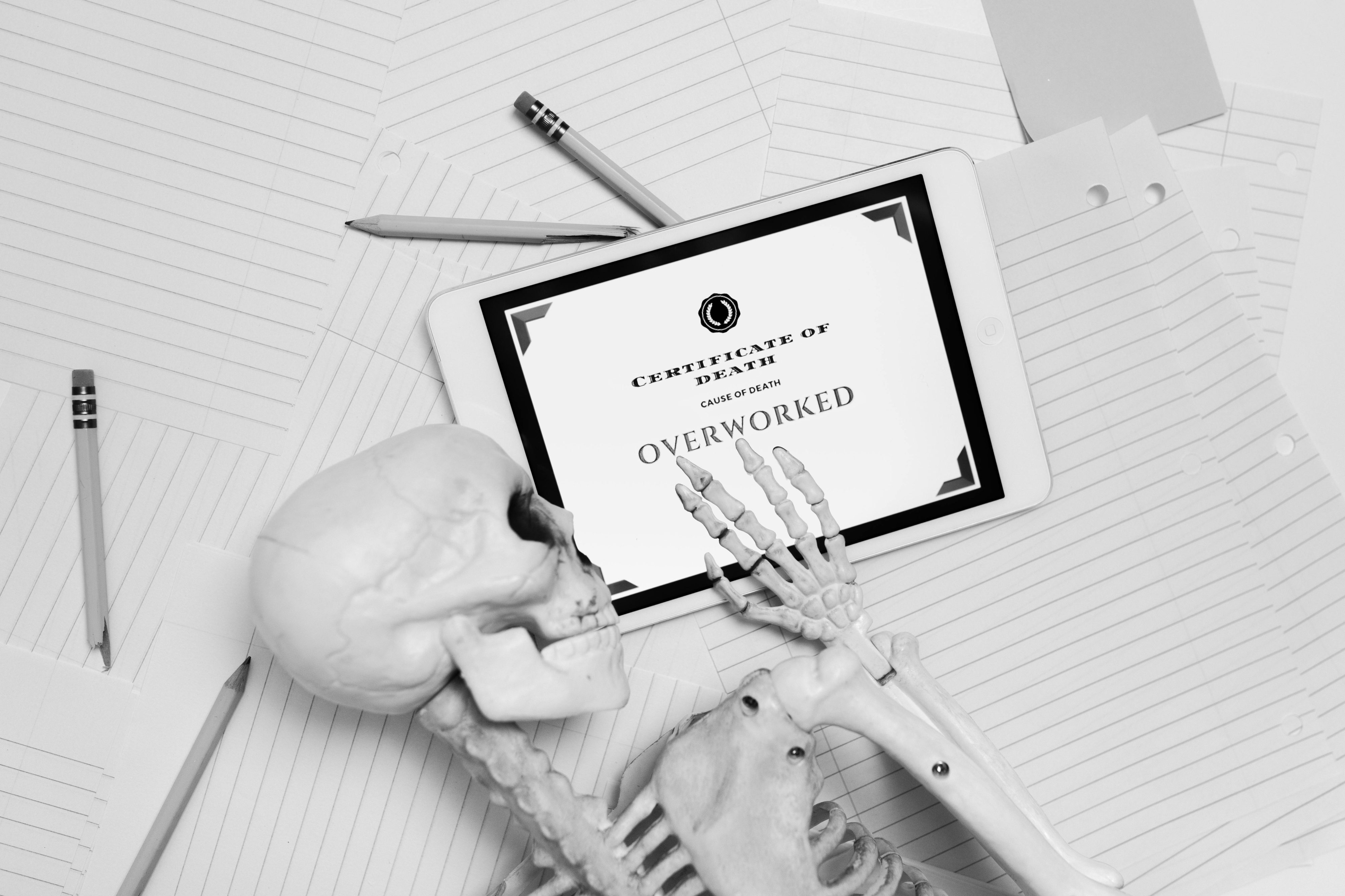The fast-paced quarter system and academic pressure
Unlike semester-based schools, UCLA packs a semester’s worth of material into 10 short and intense weeks. Midterms hit before we can catch our breath, and finals loom like a storm cloud shortly after. I have lost count of the nights I have spent glued to my laptop at Powell Library, eyes burning, fueled by caffeine and anxiety.
The academic competition is brutal. It is easy to feel like you are falling behind when it seems like everyone around you is acing their exams, landing research gigs or getting tapped for prestigious internships. Even when you are working your hardest, there is this gnawing thought: Am I doing enough? It is exhausting.
The competitive job market and professional anxiety
It is no longer just school—there is also the pressure to set ourselves up for the future. We are constantly reminded that getting a degree is not enough anymore. We need work experience, leadership positions and a bullet point-filled resume that screams “hire me!”
Many of us juggle multiple responsibilities—classes, part-time jobs, unpaid internships—on top of trying to maintain a social life. Taking a break feels like a risk. If you slow down, will you fall behind? Will someone else take the opportunity you passed up? That kind of thinking turns rest into guilt and guilt into burnout.
Social comparison and the fear of missing out
Social media makes everything worse. We see our peers securing dream internships, studying abroad or effortlessly balancing school and a thriving social life. Meanwhile, we are buried under deadlines and microwaving ramen at 1 a.m.
It is easy to feel like we should be doing more when everyone else seems to be excelling. The fear of missing out, or FOMO, pushes us to overcommit. We say yes to every event, every opportunity, even when we are already stretched too thin. We want to keep up, but at what cost?
At one point, I became so overwhelmed with the pressure to present the perfect version of myself professionally that I deleted LinkedIn. Seeing endless posts about classmates landing prestigious internships and networking with CEOs made me feel like I was failing, even though I was working tirelessly. Removing that source of stress felt like reclaiming a small part of my mental well-being.
The toll on mental health
Imposter syndrome is another beast entirely. Even when we achieve something great, there is that lingering doubt—was it just luck? Did I really earn this? Many Bruins struggle with feeling like they do not belong, constantly comparing themselves to peers who seem to have it all figured out. This self-doubt only fuels the burnout cycle, making it even harder to appreciate personal accomplishments.
Burnout is not just about being tired—it seeps into every part of life. It turns into anxiety, depression and imposter syndrome. We tell ourselves to just push through, but at some point, exhaustion catches up.
Counseling and Psychological Services, or CAPS, offers help, but let us be real—getting an appointment is tough, and sometimes, the wait feels endless. For many Bruins, mental health struggles become just another thing to deal with on an already overwhelming to-do list.
Tips on how Bruins can combat burnout
We might not be able to change UCLA’s high-pressure culture overnight, but we can take small steps to take care of ourselves. It is something I learned the hard way, and honestly, I am still figuring it out. But, here are a few things that have helped me and others along the way:
-
Setting boundaries – I used to say yes to everything: another club, another shift at work, another late-night study session, until I realized I was running on empty. Now, I am learning to say no when I need to. Protecting your time and energy is not laziness; it is self-preservation.
-
Time management – I used to think being productive meant cramming my schedule with work. But I have started treating breaks as appointments, non-negotiable moments to recharge, whether it is going for a walk, watching a show or just lying in bed doing nothing. Blocking out time for rest is just as important as scheduling study sessions.
-
Seeking support – Whether it is through CAPS, talking to friends or joining a support group, reaching out makes a difference. There was a time I thought I had to figure it all out on my own, but opening up to friends who felt the same way made me realize I was not alone. Finding people who understand you can make all the difference.
-
Reframing success – Success is not about doing the most; it is about finding balance. I used to measure my worth by my productivity, but I have started redefining success as feeling fulfilled, not just accomplished. Sometimes, doing less is the key to thriving.
UCLA pushes us to be the best, but that pressure can break us if we are not careful. We need to recognize that overworking ourselves is not a badge of honor—it is a problem. The real challenge is not in doing more, but in realizing that we are enough, even when we slow down.
—
Featured Image by Tara Winstead via Pexels

